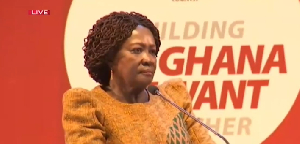Business News of Saturday, 6 June 2020
Source: www.ghanaweb.com
BoG’s GH¢10bn deficit financing timely and appropriate – Prof Bokpin
Economist, Prof Godfred Bokpin, has commended the central bank’s injection of GH¢10 billion into the economy to close the budget deficit gap created by the impacts of COVID-19.
The Professor of Finance said the emergency financing triggered by the Bank of Ghana is consistent with the best examples in more advanced economies.
“From where I sit, it couldn’t have been a better time for the Bank of Ghana to wake up than now. This is the time. This is the moment. This is the hour. The reality on the ground is that failure to act may be more devastating…and it may be more costly to correct our inaction,” he told Ghanaweb recently.
The budget deficit increase from the programmed GH¢18.9 billion to GH¢30.2 billion which works out to 2.9 per cent of GDP.
Last month, the Bank of Ghana triggered the emergency financing provisions in section 30 of the Bank of Ghana Act 2002 (Act 612) to purchase a government of Ghana COVID-19 relief bond with a face value of GH¢5.5billion at the monetary policy rate with a 10-year tenure and a moratorium of 2 years.
Governor of the Bank of Ghana, Dr Ernest Addison, has said the central bank stands ready to continue with its asset purchase programme up to GH¢10billion, in line with current estimates of the financing gap from the COVID-19 pandemic.
This move has been criticised by some economists as a marked shift from the central bank’s stance against budget deficit financing.
Former Finance Minister, Seth Terkper, has published a series of articles on the BoG’s deficit financing, warning the central bank against “bringing back the ghost of ‘deficit or budget financing',” because in the 1970s and 1980s when that happened it turned out to be detrimental to the economy.
Mr Terkper also stated in the first of two articles on the matter that the total of GH¢15.877 billion fiscal support that has been earmarked by the Bank of Ghana for government, works out to over 53% of the fiscal balance of GH¢18.888 billion in the 2020 Budget – a move he believes holds grave danger for the economy.
However, Prof Bokpin holds a contrary view.
He admits that there are inherent inflationary risks in the fiscal injection by the Bank of Ghana, but these should be drastically minimised with efficient investment and greater value-for-money mechanisms put in place.
“Done properly, [the fiscal injection] could stimulate growth or help us in the recovery process faster than we not taking this action…It is more hurtful to do nothing now for the economy to come to a halt,” he said.
“Budget financing is nothing new,” said Prof Bokpin, citing instances in the recent past when the fiscal injection has been adopted by Ghana as a measure to salvage the economy in periods it was troubled.
“In 2012, we did more than 45% [of budget financing] so these things have been there. We need to understand the context. I am not too sure we have come to understand the impact of COVID-19 on our economy and the fact that these are extraordinary times,” he said.
He said countries such as the United States of America and the United Kingdom have taken similar steps in the wake of the coronavirus pandemic.
“Pre-pandemic fiscal deficit in the U.S. was around 5%. As we speak right now it is more than 18%,” he said.
Instead of criticising the BoG’s decision to trigger the emergency financing provisions, the focus should be on keeping government on its toes to be accountable for how the injections are used.
“Our focus now should not be whether it is right or not. Our focus right now should be whether this stimulus will reach the target and it is efficient; that there are no procurement violations, and there is greater value for money,” he said.













